 HORCH 853
A
Sportcabriolet
HORCH 853
A
Sportcabriolet |
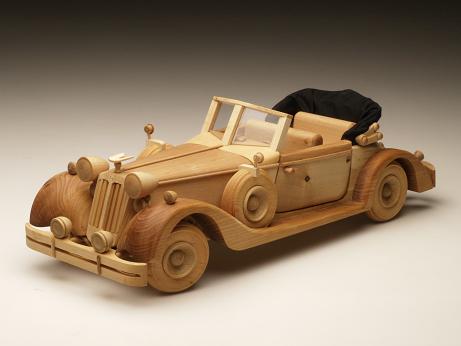
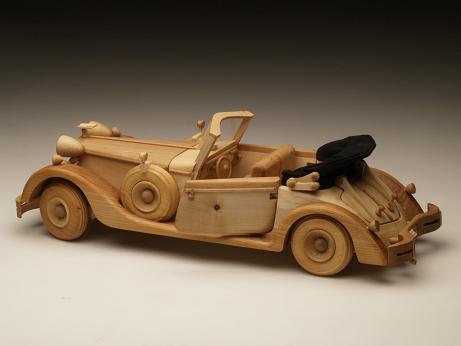
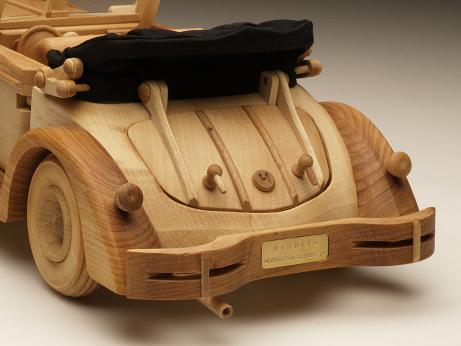
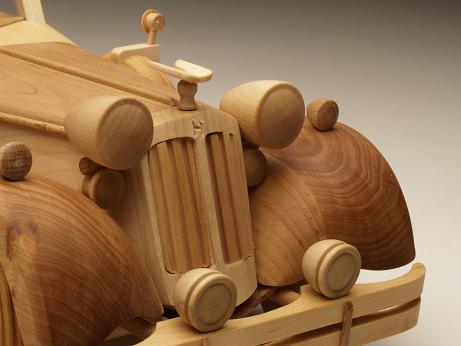

|
Horch 853
|
 GENERAL GENERAL |
To keep up with the competition, Horch introduced
the '853 A' model in 1937, fitted with a more powerful 120 bhp
version of the straight eight engine. Production lasted until
the outbreak of World War II. Today the '853' and '853 A' are
considered some of the finest cars constructed in the 1930s and
can be regularly seen in Concours d'Elegances all over the
world.
The Horch 853 was firstly presented at the Berlin Car Show in
February 1935. There were merely 627 vehicles of this marvellous
sport cabriolets produced till September 1937. Horch offered
both completed cars and rolling chassis to be bodied by
coachbuilders. Of Horch's own creations, the featured Sport
Cabriolet is the most exclusive. The purchase price of this
dream car amounted to 14.900 marks (so called Reich marks).
August Horch
(1868-1951)
Robust, strong and reliable cars were the principal features
drawn by the carmaker August Horch, which also unanimously
succeeded to put in an effect. The Horch eight cylinder vehicles
from Zwickau were and are as well technical as design state of
art automobiles.
After working with Karl Benz for a couple of years, August Horch
started producing cars under his own name as August Horch & Cie
in 1899. In those early years, August engineered many ground
breaking designs, including a friction clutch and shaft-driven
rear wheels in lieu of chains. He left the company and began to
form Audi (the Latin translation of his surname) in 1909 due in
part to a dispute with his shareholders. Production of Horch
models continued without him and in 1926 the Horch Company
introduced a new model powered by a straight eight engine. This
power plant would form the base of the Horch Company’s most
famous designs to come.
In the following several years the Horch eight cylinder engine
grew in size and displaced just under 5 litres by 1935. This 100
bhp engine made its debut in the Horch '850' series. The shorter
wheelbase '853' model was especially popular among Germany's
rich and famous. August, in the meantime led Audi to some brief
racing and rallying successes until World War I forced him to
supply the military with armoured vehicles.
In 1932, financial problems forced August to sell Audi, which
joined the Horch Company, DKW and Wanderer as Auto Union. All
four manufacturers continued production of road cars
independently but jointly backed the Auto Union racers.
 TECHNICAL
PARAMETERS TECHNICAL
PARAMETERS |
Engine:
8 cylinder
Volume: 4944 ccm
Performance: 100 bhp in 3400 rot./min
Chassis: Some of the racing car technology made its way onto the
recently introduced '853' chassis. Most evident was the rear
suspension, which consisted of an exotic DeDion axle.
Design / Feature: the mask proudly streaming ahead, clearly
manifesting the designer’s message: “Luxury and decency can
cohabit.”
 WOODEN
MODEL WOODEN
MODEL |
The
model itself is 45cm long, 14 cm high and 15 cm broad. Every
model is constructed individually, not mass produced, making
each model unique, and one of a category. Each scale model is
handcrafted with movable, working parts and wheels that really
turn, respectively with parts and fine details, which
distinguish these wooden display models as exquisite display
pieces, more than toys. For example; the side doors can be
opened and locked, back luggage space is accessible. Model funs
are absolutely delighted by side-turning front wheels controlled
by steering wheel from driver seat. The roadster is topped by
the removable textile roof harnessed with the tip-up mechanism
with all thinkable details.
Models may be made from a variety of local European fine
hardwoods and softwoods, including Oak, Walnut, Alder, Cherry,
Birch, Fir, and Pine.
These models are cut, carved, sanded and assembled with
meticulous care. arcurio®’s goal is to keep the core material as
much as possible with its natural appearance, tenderness and
fragrance. For this purpose the wood is treated solely with the
olive oil and wax.
Concerning firmness, the wooden models are so conceived that
kids elder than 3 years could play with them. Also, for a
practical usage is wood unbeatable. Small scratches can be easy
removed by simple polishing.

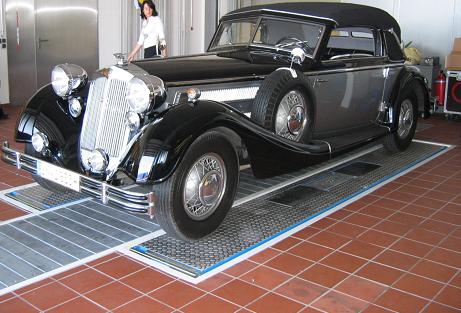
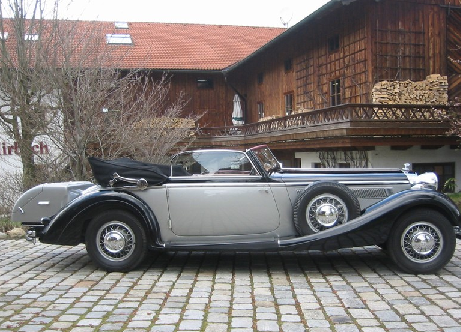
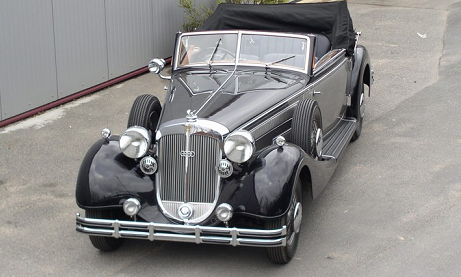
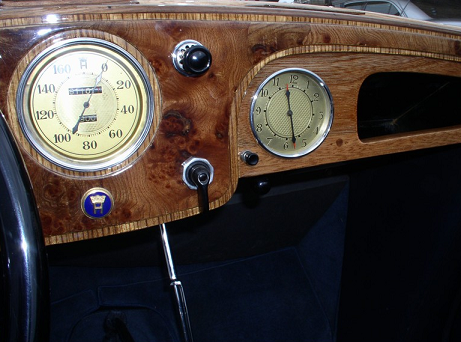

|